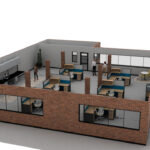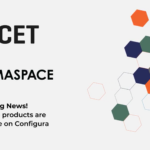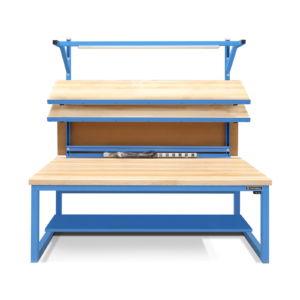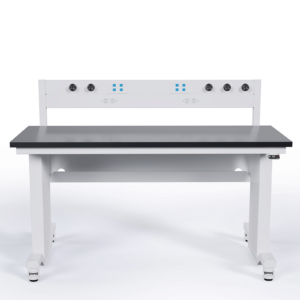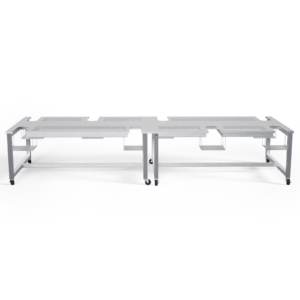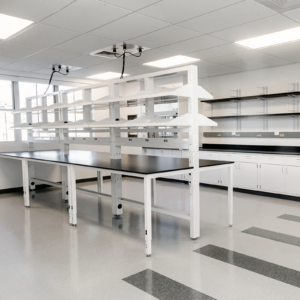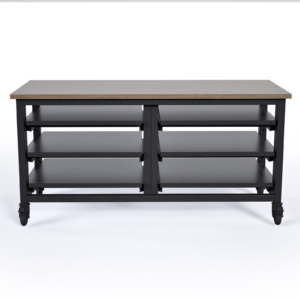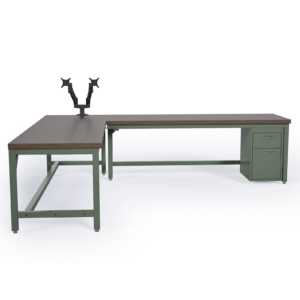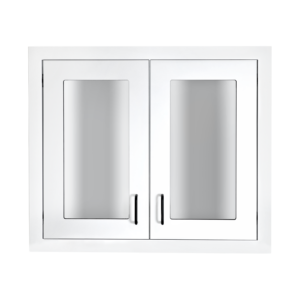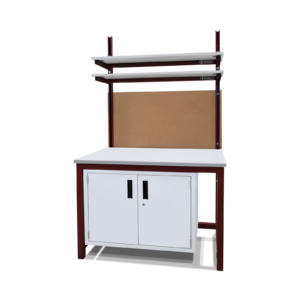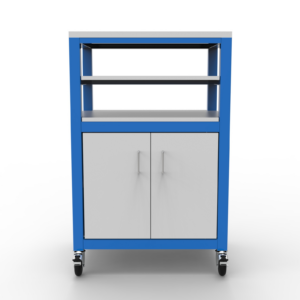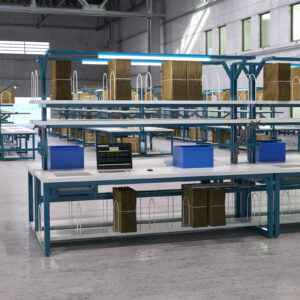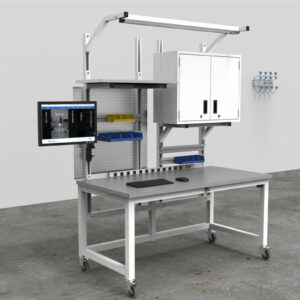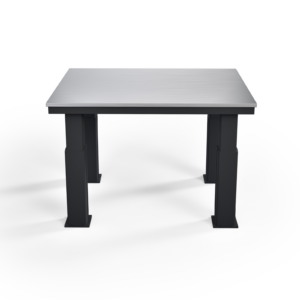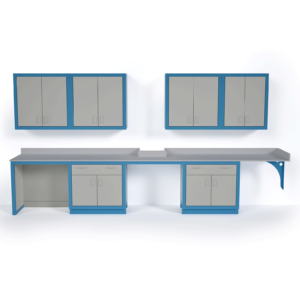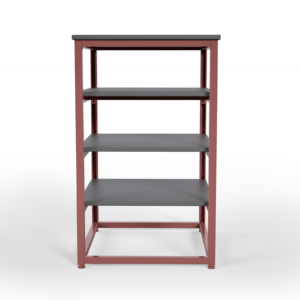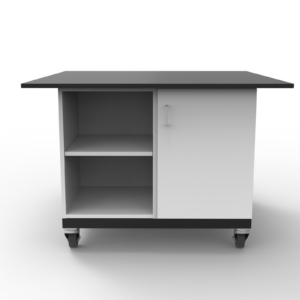There isn’t an industry on the planet that hasn’t been hit by the pandemic, but there are many businesses that are now thriving despite the turn in the economy. Why have some businesses flourished while others have floundered?
Frank Bucher, COO at Formaspace, joins Sid Meadows in his The Trend Report podcast to discuss how Formaspace has transitioned their business to have better reaction times and amazing customer service, allowing them to thrive in this time.
What sets Formaspace apart from other companies just like them?
Listen to the podcast
Sid: Hey there. Welcome to today’s Trend Report Podcast. I’m glad you are joining us for what is going to be another great conversation with an industry leader, and I’m happy to welcome Frank Bucher with Formaspace to the podcast today. Hey Frank, how are you?
Frank Bucher: Great, thanks for having me Sid, how are you today?
Sid: Great. Thank you sir. First, I think we’ll start this conversation off with a big congratulations to you and your big promotion to the chief operating officer at Formaspace. That’s great.
Frank Bucher: Appreciate it.
Sid: Frank, tell us a little bit about your journey, who you are, and what is Formaspace, what do you guys do?
Frank Bucher: I’ve been in the business since 95, which feels like a lifetime ago. I started out in a dealer to sales capacity and then migrated my way over to the manufacturing sides, a balance of my career seven or eight years with Teknion, and then over to H&I, in various roles. Then, you and I had the pleasure of working together at AIS for a small time. After that, I was over at Baker manufacturing for about three years. My last stop before Formaspace was with BKM in Texas, helping out to run the Steelcase sales and marketing piece of the dealership. And then, I’ve been with Formaspace for a little over three years. Started out just in sales and marketing, but then in July, I’ve taken over a more expanded role where I’m running a lot of the business. So it’s been great, we have two different sides of our business. One is lab and industrial furniture, and that’s sort of our historic business, our heritage business, if you will. And the other side, which is very emerging, is custom office furniture.
Sid: So you’ve had a great journey learning a lot about our industry, and in a variety of different roles. And then you landed in a lab manufacturer, industrial products. And if I’m not mistaken, weren’t you kind of the catalyst for them to get into the custom office?
Frank Bucher: Yeah, it’s a good question. Jeff Turk, the owner, had really kind of done business with a bunch of dealers, especially out West. One Workplace was a real big dealer for us. And they were really the ones who were telling us that the industrial benches and lab furniture that we’re selling is really popular on the office side of the fence. A lot of architects, designers love that sort of industrial look and they have coined it industrial steam punk to begin with because it did have that really cool, fun look to it. So we had dipped our toe into it. I was brought on board right before NeoCon three years ago. My charge was to get independent reps on board and develop and build out that strategy. So they had the momentum, and I was the guy to get on, right as the wave was starting to crest, and really help us lean into and leverage what we were doing on that side of the fence.
Sid: Great. So obviously, as we all know right now, things are a little bit crazy in the world. Some people are emerging out of the COVID shut down, some are not. Tell me what it’s been like for you guys during the last six months.
Frank Bucher: It’s been a lot of uncertainty for everyone. I know we’ve been very fortunate, very blessed with both sides of our business being so radically different. On the lab and industrial side, we’ve seen that labs are shutting down. In fact, they’re going the opposite way. A lot of life scientists have to continue working. We’ve seen a lot of people on the educational side of the fence that have taken this opportunity to redo labs that they’ve been wanting to do for years. And they just couldn’t, because students were continually coming, cycling through. Then on the office side we’ve been pretty successful because people know that we’re a custom manufacturer and there’s a lot of uncertainty right now and they don’t know what they want and they know that we’re good at that. We’re really good at translating the clients’ needs into a custom solution that will fit their business. Through August 30, first of this year, we’ve booked more business than we did all of 2019. So we’re up double digits year over year. And we’re very fortunate to have great dealer partners, great end customers, really good raving fans in the architectural and design community as well.
Sid: You guys should be congratulated for that. Your sales are up. And even before the year’s over, you’ve exceeded last year sales, which is fantastic because there’s not a lot of people that can say that and we all read their reports. We all see the news that comes out about the decline in sales. Frank, what do you really attribute that growth to? What was it that really got you there?
Frank Bucher: That’s a great question because I get that a fair amount and I would tell you, we’re very fortunate. Number one, because the way our business model is set up, like I said before, we have two different sides of our business. So that certainly helps, when one side might be down a little bit, the other side certainly is keeping a pace, but we’re fortunate, both sides were surging. We are really a company that’s geared to talk to customers about solutions. We’re not really a standard product company. We have some standard products, but really people look at our standard products and say, okay, I get it. I get what you can do. Now, what I really want is this, I really want you to make this. I want you to make it a little bit bigger. I want you to brand this. So we’re very fortunate that people in this environment now have really come to us and really embraced the materials that we use.
We recognized early on that sneeze guards were going to be a really high demand item. And so we’ve been working with acrylic, we’ve been working with PETG, we’ve been working with HDPE, a lot of different types of materials. I think that gave a lot of our customers a lot of comfort.
The other effect that we didn’t realize was that now this opened up the door to people who had never had an experience with Formaspace. They didn’t know what we could do, or the customization ability of our products, or how we would really embrace what they wanted and give them something that’s a deliverable product in a much sooner timeframe than most of our competition. So now what we’re starting to see is our dealer partners are coming to us for other things that we hadn’t even considered because they’ve had a good buying experience and we’ve really been able to custom tailor things.
The other piece of it too, is the way our business is structured. We have an engineering and industrial design team in house, so we don’t have to outsource those functions. I can really line our business model and line our functions up so that when a customer says, hey, this is what I want – we can take that, translate it and get them some drawings fairly quickly so that they can sign off and have a reasonable facsimile of what it would look like. And then get an order in a quicker fashion than you typically would with custom products.
Sid: So there’s several things you said that I think are really interesting. First off, you said diversity is key. And that really helped you grow – being diversified, working in multiple vertical markets.
Frank Bucher: Absolutely. One great example of that was General Motors. General Motors called us and they came to us when they had a partnership with Ventech to start building ventilators and their Kokomo, Indiana facility that we’re going to repurpose. They needed lab benches and they needed them quickly. So we were able to take our entire production schedule and we worked pretty diligently to make sure that we could make room for General Motors. We started shipping about a day after they called us. I think it was basically a day or two business days to get everything set. We started shipping full truckloads for close to 30 days to fulfill this order for them. Being diversified and working on that side of the fence allowed us to be essential and keep our factory open and still to serve as a lot of customers on the office side. So having that diversity and that balance was huge for us on a lot of levels.
Sid: That’s great. And Frank, did I hear you say correctly, you started shipping products to General Motors within days of them calling you?
Frank Bucher: Yeah, they reached us on a Sunday night, and I have to give kudos. We have a woman on our team, Megan Clark, who was new at the time. She’d only been with us less than a month. And she had enough foresight to engage this customer, get back with them and answer a lot of questions. And they told us after that they reached out to about three or four other manufacturers, but we were the most responsive. Megan was so responsive, that they didn’t feel the need that they had to go out and look anywhere else. So we were really fortunate there. And from the time that she had the initial dialogue, myself and Jeff, our owner, we were on the phone with General Motors, procurement. I think it was probably nine o’clock that night, Monday night. And then Tuesday at five o’clock I believe was our first shipment that we sent out the door. So I have to take my hat off, the people in production did an amazing job. Our sales team did an amazing job reaching out to all the customers and saying, hey, we really want to help the fight against COVID-19. And I think we did our patriotic duty.
Sid: That’s fantastic, congratulations! That’s a great story. So we started out with diversity is key, which is great. And then the other thing that you said a few minutes ago was being really focused on solutions and providing solutions. And, what you talked about was that your teams and the way you’re structured really gives you the ability to talk to the customer, understand their needs, and then be able to just go create.
Frank Bucher: Yeah, I think we’ve all in this industry come from the mindset of ‘here’s my standard catalog of products, Mr. Customer. And hopefully you fit in here.’ But we just have a unique DNA. We talk to customers about what they’re trying to achieve. We want to know what’s important to them. Is it functionality? Is it esthetics? Is it materiality? There’s a lot of different factors nowadays. Do they want it to look as a resimmercial? Does it need to work in multiple different environments for their team? And so that gives us a huge competitive advantage because we’re already wired that way. It also allowed us to pivot our business, because a lot of what we were seeing this heavy, heavy demand was around these COVID-19 products, needing more space in between people or needing barriers, needing screens. And so just the ability for us to be able to translate the information from the client, the client demands, and then line that up with our engineering, and be able to develop those products in rapid fire. And then get those products to market via our marketing and our marketing engine, I think really helped us to be able to lean into the market when the market was really shifting as you guys all saw right around March, April timeframe.
Sid: I think the market’s still shifting in a lot of different directions. It’s going to be very exciting to watch the evolution in the next five to 10 years of what’s going to happen as we come through this, but we won’t get on that. You’ve talked about diversity being key, being solution focused and pivoting your business at the right time. All of which gave you a competitive advantage in the marketplace because you’ve grown your business significantly in a timeframe when most people are laying off and their sales are reduced between 25 and 45%. What do you attribute that to?
Frank Bucher: Again, I think it’s the investments that we’ve made over the years. We invested in an operating system last year, an ERP system. And we did that knowing that we were going to have to scale up our business at some point. We wanted to have more connectivity with our vendors, be able to manage our vendors in a more meaningful way and just to be able to really scale our operations. So I think that investment was huge. And then I just think the discipline we have as an organization really shows through to a lot of our customers, because if they’ll ask us for something, we get it to them. We translate what they want, how they want it, not how we think they should have it. And I think in these uncertain times, people are looking for valued partners.
Sid: That’s great. So you said a couple of really key descriptor words there that I like, which included investment, you invested in the organization with electronic resources and things of that nature. You’re disciplined, flexibility and partners. And all of these are really great adjectives to describe who you are as an organization, but let’s be clear, you’re a small business and that has its own level of flexibility, right?
Frank Bucher: It does. To be fair, we don’t have a bureaucracy to get through to do things. We definitely have the advantage. You’re talking about the battleship taking the right, we don’t have a battleship, so it’s easy for us to make decisions. But at the same point in time, I will tell you a lot of the decisions that our customers put us in a situation to make, we’ve been there before. And so I would tell you that there’s just no substitute for experience and having that experience to know what someone’s asking for and how to make it work for them.
Sid: Absolutely, there’s something to be said about how nimble, flexible, and agile a small business can be to meet the demands of a customer. You think about a big ship and battleship trying to manufacture, on the phone with, and talk to get a spec done and manufacture products and get them out in two days to a company like General Motors.
Frank Bucher: Yeah. It’s hard. We’re very blessed to be in that type of situation. And we were honored to be part of it. Candidly.
Sid: It’s such a great story. I’m a huge fan of small businesses. I’ve worked at the big major companies. They’re all great, but I’m just a big fan of small businesses doing really cool things. And you’re doing that. You’ve diversified, you’re doing some really great things are responding to customers’ needs. You’re creating products that they want rather than what you just want to sell, which I think is also great. Right?
Frank Bucher: Absolutely. And everyone forgets that everyone started as a small business at one point, right? People certainly lose sight of that, and I think over time they feel like they know more than the market. But I always thought with my career, when you lose touch with the market and you lose touch with your clients, that’s when you’re in trouble, that’s when you’re vulnerable. And that’s what I like about our company – we don’t lose sight of that. We’re very close to our customers. Look at everyone as a customer, whether it’s internal or external, whether it’s a dealer partner in an A&D firm, a GC and or a new client, we really try to listen to that feedback, digest that feedback and turn that into action to really make their life a little better.
Sid: At the end of the day, it’s about understanding what you did right. And how do you take that and how do you grow, right? How do you leverage those experiences in order to grow your business? You’re listening to what the clients are wanting and what they’re asking for. And if you get multiple people asking for the same thing, there should be lights going off that. Let’s try to take this and exploit it.
Frank Bucher: You’ve got it, and that’s really what I’m really doing in my new role. I’m trying to line up our resources and increase that speed to market. How do we rapid prototype in a quicker manner for our clients? We’re already pretty fast, but my belief is the quicker you can get back with someone the better. And we want to meet clients, and have the impact right when they want the impact. So that’s where we’re focused – how do we continuously build a company and a system that’s sustainable and scalable and repeatable?
Sid: Build a system that’s predictable, repeatable, and scalable. And regardless of the type of business that you own or run or work at, those are three very important things to remember as you’re trying to navigate the world.
Frank Bucher: A hundred percent. And like anyone else, we like product development. We want to build something that we can also build a million of. Right? That’s what everyone wants to do. And I think that’s something that we’re good at. Our engineers, Aaron Stoneburner, who runs that team for us, is amazing at his job. And Brett Gray, the project manager, they both just have this innate ability to look at things and say, okay, here’s the right materials that we need to use. Here’s the right vendors that we need to use. And here’s what the client ultimately is asking for.
Sid: That’s great, good listening skills there. Frank, what’s it been like leading a small business through these turbulent times?
Frank Bucher: It’s been a challenge, because you have to constantly remind people that we appreciate what you’re doing. We acknowledge what you’re doing. We’re here for you. Normally, we’re in the office every day, but when you can’t walk over and ask someone how they’re doing, it’s a challenge. Yesterday we had an all company lunch and we did it virtually – no topic, no reason whatsoever. We just all wanted to see each other. It started out and we were talking about hummus. I don’t really understand why or how, but the conversation lasted for probably 5-10 minutes. And then we positioned onto hairstyles and hair cuts, and all the things that are on people’s mind right now during COVID-19. We’ve had a couple of cocktail hours as well, five o’clock on a Friday just to stay connected with the team.
We’ve done a lot of calls as well. I don’t think I’ve been on as many calls, video calls like this in my entire life, but people can see us. And I think that humanizes the experience. And I’ve really tried to reach out to everyone and over communicate that I’m super appreciative of what they’re doing. I know these are tough times. There are going to be some challenges ahead, please don’t make it mean anything. It doesn’t mean that you’re doing a bad job or the company’s off, we’re going to have some ups and downs. Those are the things that I’ve really tried to communicate.
Sid: I appreciate the fact that you have done engagements with your team where you brought them all together on zoom and a variety of things. Since I started my business three years ago, zoom has always been part of what I’ve done. Never as much as it is today, but I do really like how it does allow you to actually see a real face. I can see and hear you. And coming from a big time sales background, watching body language is really important. And zoom gives us so many benefits to it. It provides a format for us to actually connect in a unique way. And I really like it.
Frank Bucher: Yeah, I couldn’t agree with you more. I think people feel isolated. They just do. And if they say they don’t. They do. We’re wired in this industry to be on the go, being on airplanes, being in front of customers, and there’s definitely some identity loss, I think. So for me, it’s about reaching out. It’s about talking, it’s about just checking in with people, seeing how they’re doing, seeing what they’re, is that a dog I hear in the background and your pictures, you know.
Sid: I was on a training call the other day with a group of reps and a couple of them had their kids come in on the call, which happens and, I think pre March, it would have been a really big issue, but now it’s kind of expected. I really actually appreciated any time a kid came into the picture, everybody on the call would wave at the kid. I think it just creates another level of connection with people. When you see that they’re living their life the best that they can at this very moment.
Frank Bucher: Absolutely. And a lot of times we forget what the other people are going through, and we forget we’re all bonded. This is all a universal experience and we’re all going through the same thing.
Sid: So Frank, talk to me a minute about what’s next as it relates for the product development for you guys. What are you working on?
Frank Bucher: I feel like the industry is so dynamic right now, and what could be more dynamic than having to work from home and COVID-19 and all the challenges that we have. And I firmly believe that furniture now is becoming a lot more commingled, it’s residential, it’s commercial, it’s resimmercial, it’s hospitality. My wife and I are looking at redoing some of our furniture, cause I’ve had a lot of moves and we’re looking around at the collections and the stuff we have. And I’m like, this looks like that product. And so from my perspective where that translates, we are really looking at different products that people want and not so much one particular segment. It’s really about looking for what are the products that can cross over.
Maybe it’s residential, maybe it’s commercial, maybe it’s outdoor. We want people to realize that just because we’re a dealer and we sell mostly into offices, it doesn’t mean we can’t sell you product that’s outdoor, or product that technically could, instead of a conference table, be a kitchen table or a dining room table. Our head is really more around what are the handful of products or things that augment what we’re doing, but also support the story of functionality and diversity.
Sid: What you said a second ago is spot on, the lines today are really blurred. Lots of crossover happening with lots of different products, whether they’re home, resimmercial design or commercial design. And the outdoor space is now becoming really a lot more prevalent than it ever has been before. Before, outdoor space was a luxury. Now, I think it’s going to be a requirement. People are going to want more outdoor space, which means they’re going to want more furniture to go out there, that’s going to be usable and workable for their employees, because they’re going to want to go out there and work.
Frank Bucher: I couldn’t agree with you more, and we’re starting to see that show up too, in educational facilities. There’s a lot more learning going on. You look at houses nowadays, everyone’s got the roll up doors where you can now make your outdoor, your patio or your pool is if you’re fortunate enough to have one, sort of extension of your living room. And I really think it’s all coming together. For where we are as an organization, I’m not real fond of making commoditized products. I’m fond of filling in gaps that people don’t have. So those are what we look at – how can we be a partner to a dealer that has to look to five different manufacturers to round out a spec? We want to be the guys that can round that out.
Sid: I love that. Looking for where the gap is and staying in your lane of customization to help the dealer round out what it is that they need in order to complete that project the right way.
Frank Bucher: You got it. Not a commodity product. I’m not interested in making a chair that no one else has or a height adjustable table that there’s certain things out there, a panel system.
Sid: Frank, for somebody that’s been living through and leading a company through great success in the middle of a worldwide pandemic, what kind of advice would you give to leaders regardless of the type of company they work for, that would be good tips for them to help continue to lead their organizations through this?
Frank Bucher: I think the biggest thing is it needs to be opportunistic. You need to think a little different than you did in March. I think people have to broaden their thinking a little bit. That’d be some of my biggest advice – be opportunistic, be open, and expand your capabilities and meet the market where the market is. From a people standpoint, managing people and staying on top of an organization, I think it’s a lot of what we just talked about, making sure that your people know they’re doing a good job, staying in touch with them. I’ve been on more direct calls with customers, dealers, talking about specific projects, just so they know that from my level.
Sid: I love that. And I think so many people think, especially when you’re in a crisis, that being opportunistic is taking advantage of a situation. But when you do the research and you look at economic downturns and bad things that have happened in our world in the past a hundred years, you can point to some pretty amazing companies that were born out of a economic downturn that were opportunistic. And let’s specifically point at anybody that’s used an Uber or rented an Airbnb. Both of those companies came out of being opportunistic and looking at what was going on in the market in an economic downturn.
Frank Bucher: I couldn’t agree with you more. History, look at the industrial revolution. There are a lot of examples about gasoline byproduct because lamps were no longer being used. You know what I mean? So there’s a lot of that. Again, the people who look at it as a challenge and the people who aren’t afraid to step outside of their comfort zone. I think those are the people that are going to be rewarded.
Sid: So, have the courage to be open-minded to look outside of your box, to see what’s possible for you, your employees and your business, and you don’t have to stay inside the box that you’ve always been in. You guys are a perfect example of pivoting and what it means to pivot. Everybody, regardless of the industry that you’re in or what you do should be exploring pivots of some degree in order to grow your business and put your business in a position to thrive. And there’s an acronym. If you don’t create it, who will?
Frank Bucher: Yeah, that’s right.
Sid: Absolutely. Listen, the future is bright. It’s exciting. And especially for those that are willing to embrace it and willing to think differently, just like what you guys have been doing.
Frank, I really appreciate you being here today. It’s been a pleasure to see you and to chat with you about what you guys are doing. If anybody listening to our podcast today would like to connect with you, what is the best way for them to do that?
Frank Bucher: They can send me an email at frank.bucher@formaspace.com.
Sid: Excellent! It’s been a pleasure to see you, and I wish you guys much continued success and thanks for hopping on with me today.
Frank Bucher: Sid, it was a pleasure. Thank you so much. This couldn’t have been more fun and thank you for everything. Appreciate it.




